“When the people saw that Moses was so long in coming down from the mountain, the people gathered (Vayikahel Ha-am) against Aaron and said to him, “Come, make us a god who shall go before us, for that man, Moses, who brought us out of the land of Egypt – we do not know what has happened to him” (Exodus 32:1)
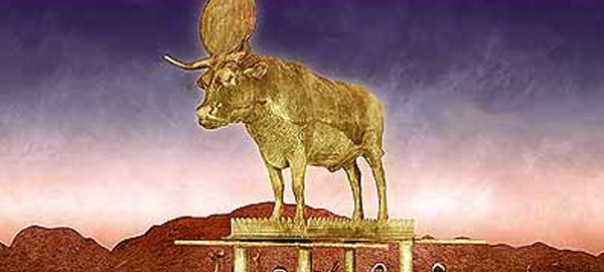
This is the famous story of the Golden Calf. With their leader, Moses, away from the camp, having climbed the mountain, the people become afraid that their spiritual leader is gone – or perhaps has even died. In this stressed state of high anxiety, they create the Golden Calf. What if this act is not an expression of their desire to worship idols? Perhaps it springs from a deep longing to connect with something greater than themselves – a certain “Truth,” which some may call that which is “d/Divine.”
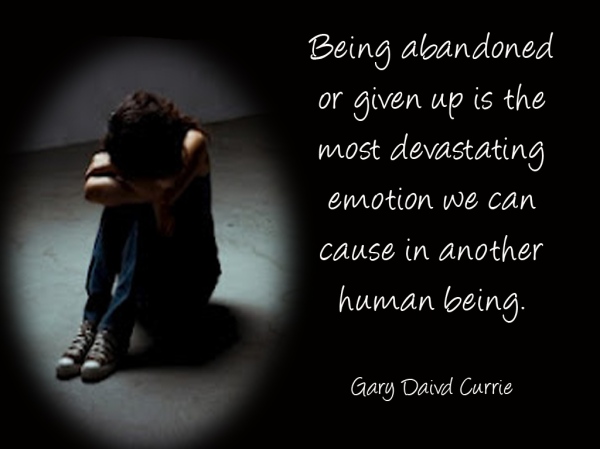 It has been my experience that this feeling of longing without a resulting sense of connection creates feelings of abandonment which invite anxiety and depression . Such is what seems to be manifesting today. The cause appears to be the deepening of a psycho – socio-economic and belief-based conflict that is polarizing families, communities and our nation resulting in people abandoning one another and literally breaking our hearts and spirits. Unable to “love our neighbors as ourselves,” we risk cutting ourselves off from sensing the shared “Truth” that we are all human beings made of the d/Divine.
It has been my experience that this feeling of longing without a resulting sense of connection creates feelings of abandonment which invite anxiety and depression . Such is what seems to be manifesting today. The cause appears to be the deepening of a psycho – socio-economic and belief-based conflict that is polarizing families, communities and our nation resulting in people abandoning one another and literally breaking our hearts and spirits. Unable to “love our neighbors as ourselves,” we risk cutting ourselves off from sensing the shared “Truth” that we are all human beings made of the d/Divine.
Some, driven by an ideology akin to Darwin’s survival of the fittest, are emboldened by the belief that their’s is the only way forward for our country. Others are experiencing an existential crisis, shaped by spiritual and social exile, are expressing a growing sense of frustration, fatigue, and isolation. One response to this crisis is to replenish our minds, bodies and souls. This response arises from the belief that all things are interconnected and part of a unified whole. To remove all that distorts love or blocks access to our moral center we turn to the practice of mindfulness.
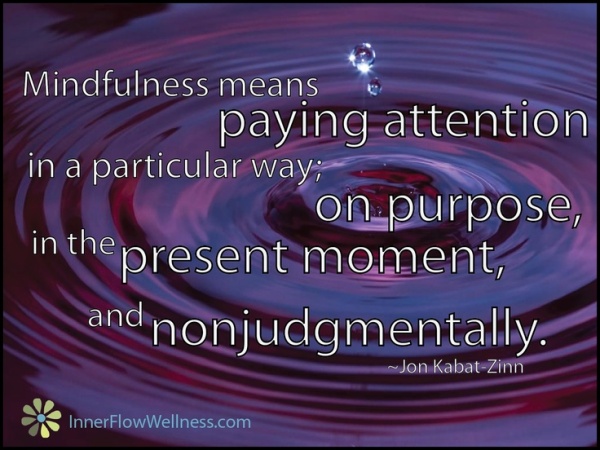 Mindfulness, according to Ohio State Integrative Medicine, “is paying attention in three particular ways: on purpose, in the moment and without judgment. [One] can practice mindfulness of breathing, eating, bodily sensations (body scan), thoughts, emotions, communication (listening and speaking) and walking or other activities (such as yoga or tai chi). With more practice, [one] can become more mindful throughout the day, not just during formal practice periods.”
Mindfulness, according to Ohio State Integrative Medicine, “is paying attention in three particular ways: on purpose, in the moment and without judgment. [One] can practice mindfulness of breathing, eating, bodily sensations (body scan), thoughts, emotions, communication (listening and speaking) and walking or other activities (such as yoga or tai chi). With more practice, [one] can become more mindful throughout the day, not just during formal practice periods.”
Why mindfulness practice? Jon Kabat-Zinn , who focuses on mind/body interactions, teaches that mindfulness helps us heal ourselves and the world. According to Kabat-Zinn, “Mindfulness practice means that we commit fully in each moment to be present; inviting ourselves to interface with this moment in full awareness, with the intention to embody as best we can an orientation of calmness, mindfulness, and equanimity right here and right now.” And, just as mindfulness addresses inflammatory health, it can also help us address things that inflame society and create conditions that attract disease.
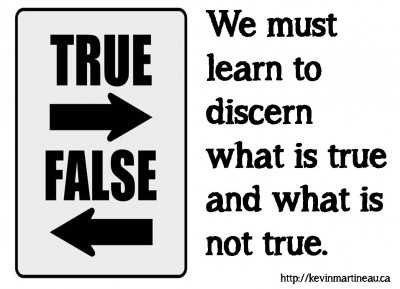 According to Tom Mahony , a biological consultant, “True believers inflame conflict and impede progress in society because they simply can’t be reasoned with. ” Mahony describes “true believers” as being “stuck in a positive feedback loop: the more evidence against their position, the more entrenched they become. No mental mechanism exists to break the loop. They only accept evidence that agrees with their preconceived notions, and, conveniently, insist they’re the sole arbiters of what constitutes “evidence.” There’s a sieve around their brain that screens out troublesome data. Any topic where facts are inconsistent with their beliefs is taboo because it simply can’t be true. Open-minded heretics pursuing such topics will be slandered, ridiculed, and ostracized. ”
According to Tom Mahony , a biological consultant, “True believers inflame conflict and impede progress in society because they simply can’t be reasoned with. ” Mahony describes “true believers” as being “stuck in a positive feedback loop: the more evidence against their position, the more entrenched they become. No mental mechanism exists to break the loop. They only accept evidence that agrees with their preconceived notions, and, conveniently, insist they’re the sole arbiters of what constitutes “evidence.” There’s a sieve around their brain that screens out troublesome data. Any topic where facts are inconsistent with their beliefs is taboo because it simply can’t be true. Open-minded heretics pursuing such topics will be slandered, ridiculed, and ostracized. ”
Concerning what is actually true, Mahony asserts that “true believers often moralize about the importance of facts and insist they’re the only ones who are ‘reality based.’” They may however, actually confuse facts with facts with assumptions, beliefs, conjecture, and opinion. When an incorrect assumption is taken as fact anything extrapolated from that assumption – no matter how “logical” it may sound – is wrong because the foundational assumption is wrong. Mahony further suggests that “[t]rue believers haunt any subject: science, religion, health, history, economics, politics.” They do not feel restricted by any particular “political affiliation, ideology, culture, gender, age, metaphysical belief system, or education level.”
Who, then, according to Mahony, is able to rebuff the true believers? The open-minded skeptics who, with real facts on their side, lead by example and live honestly and compassionately. Joining together in this way, he encourages us to believe that truth eventually prevails.
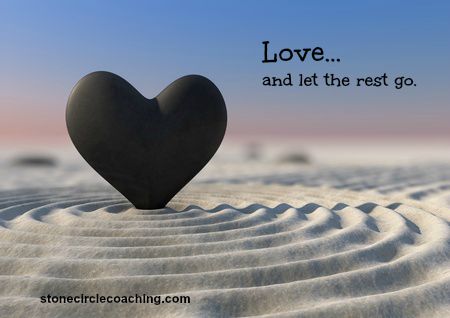 In the Golden Calf story as today, we are vulnerable to the fear of being abandoned by our leaders – political and spiritual. We, too, long for meaningful relationships which elevate our lives because they connected us to a vibrant, supporting whole that is greater than its parts. Secure in a shared mutuality of caring and responsibility, we can mindfully develop our ability to draw closer to one another instead of inflaming and abandoning one another out of our insecurities. Not as “true believers,” but as believers in truth, we can invite inclusivity, allow for diversity, advocate for connection over disconnection, pursue acceptance over judgment, and manifest love to overcome baseless hatred. This is the most concrete evidence that the d/Divine dwells here on earth.
In the Golden Calf story as today, we are vulnerable to the fear of being abandoned by our leaders – political and spiritual. We, too, long for meaningful relationships which elevate our lives because they connected us to a vibrant, supporting whole that is greater than its parts. Secure in a shared mutuality of caring and responsibility, we can mindfully develop our ability to draw closer to one another instead of inflaming and abandoning one another out of our insecurities. Not as “true believers,” but as believers in truth, we can invite inclusivity, allow for diversity, advocate for connection over disconnection, pursue acceptance over judgment, and manifest love to overcome baseless hatred. This is the most concrete evidence that the d/Divine dwells here on earth.
Shabbat shalom,
Nina J. Mizrahi, Community Rabbi
Parashat Ki Tisa/Shabbat Parah 5777

 A Passover message inspired by my smart phone!
A Passover message inspired by my smart phone!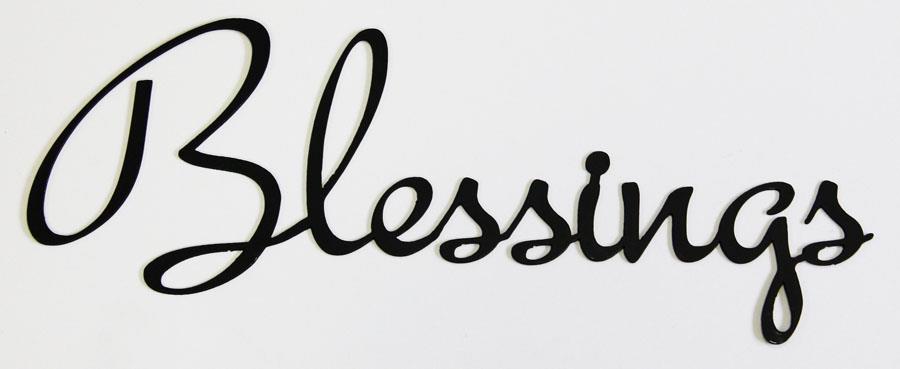
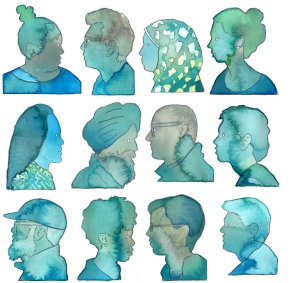 In contrast, Kula moves the discussion out of the Jewish community and into the global sphere. Responding to the rise intermarriage (racial, religious, ethnic, etc.) he believes that “more people with different inheritances and traditions form intimate relationships and families, the better we will understand each other across all boundaries, and the wiser we will be at knowing what from our rich traditions we need to let go of and transcend, and what we need to bring along with us to help us create better lives and build a better world.” This is a radical view which no doubt creates discomfort for traditionalists, liberals and secularists alike.
In contrast, Kula moves the discussion out of the Jewish community and into the global sphere. Responding to the rise intermarriage (racial, religious, ethnic, etc.) he believes that “more people with different inheritances and traditions form intimate relationships and families, the better we will understand each other across all boundaries, and the wiser we will be at knowing what from our rich traditions we need to let go of and transcend, and what we need to bring along with us to help us create better lives and build a better world.” This is a radical view which no doubt creates discomfort for traditionalists, liberals and secularists alike.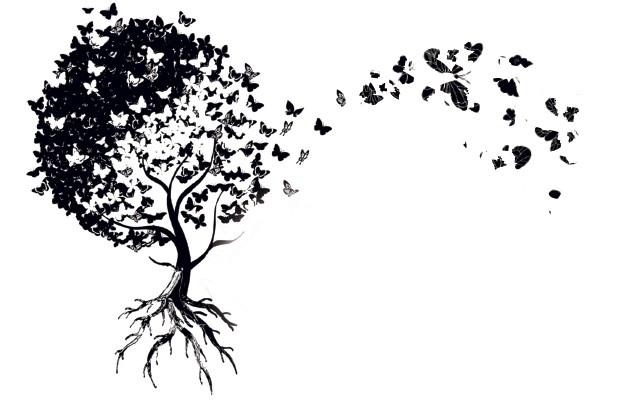 Consider another reading. Perhaps this hints at the tension inherent between the choices made by an individual and those made by a community. It is within that tension that Judaism and the Jewish people struggle – hopefully, for a blessing. It is in this dynamic tension between the roots of tradition and wings of innovation that transformation takes place. Upon seeing the unique godliness in the individual may we be so blessed to manifest the love and acceptance needed to connect us together as part of the human family.
Consider another reading. Perhaps this hints at the tension inherent between the choices made by an individual and those made by a community. It is within that tension that Judaism and the Jewish people struggle – hopefully, for a blessing. It is in this dynamic tension between the roots of tradition and wings of innovation that transformation takes place. Upon seeing the unique godliness in the individual may we be so blessed to manifest the love and acceptance needed to connect us together as part of the human family.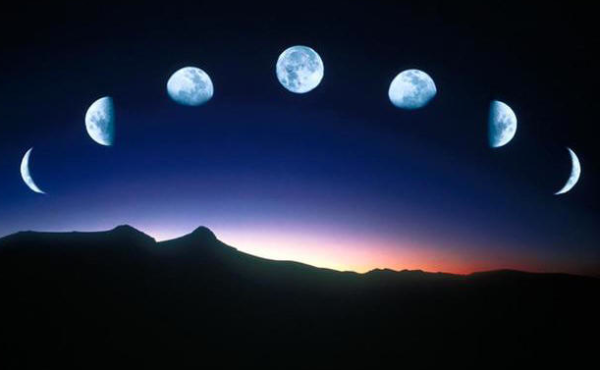 Shabbat Shalom & Rosh Chodesh Tov,
Shabbat Shalom & Rosh Chodesh Tov,

 Getting to Eden
Getting to Eden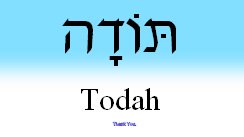
 Your parched soul
Your parched soul
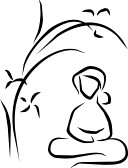 Exhale sadness
Exhale sadness Nurture a blossoming of …
Nurture a blossoming of … a bouquet of unity
a bouquet of unity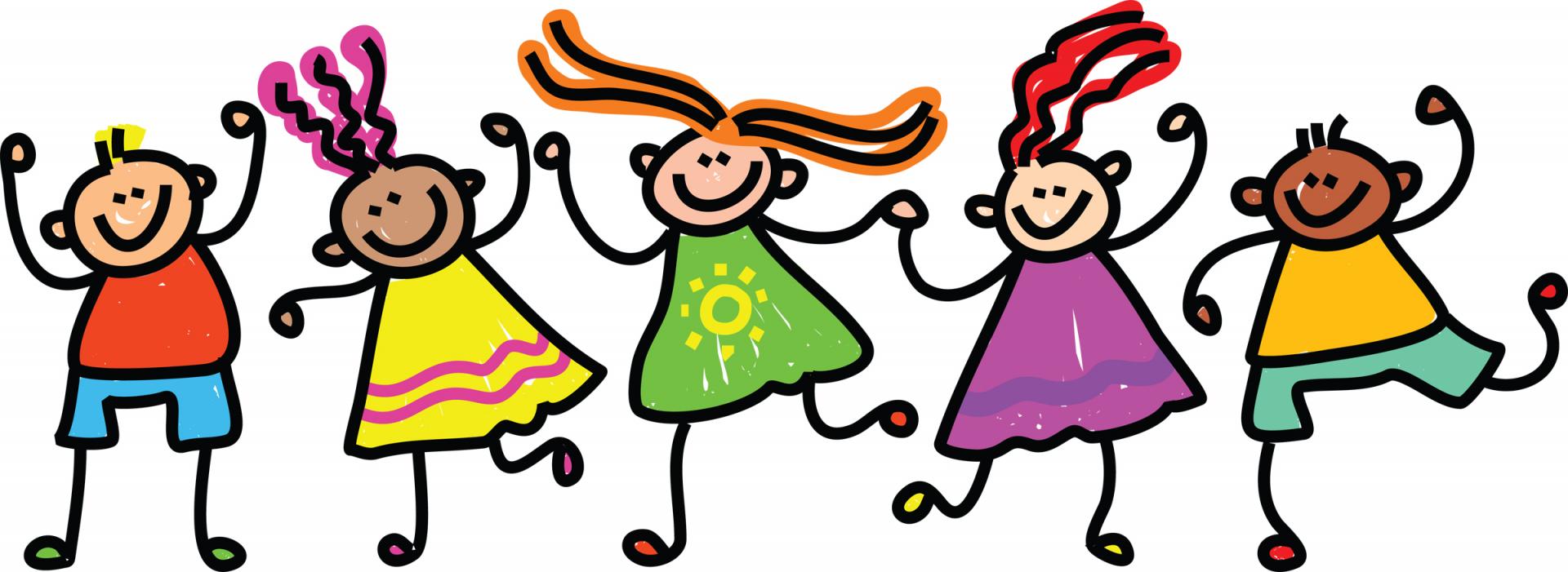
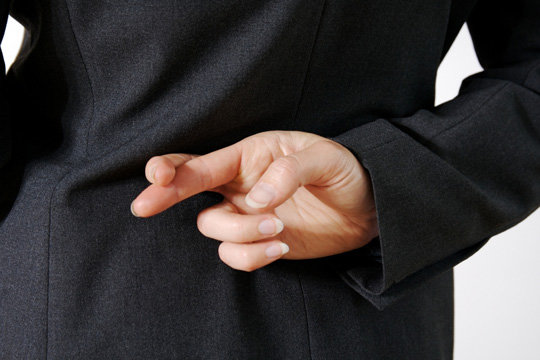


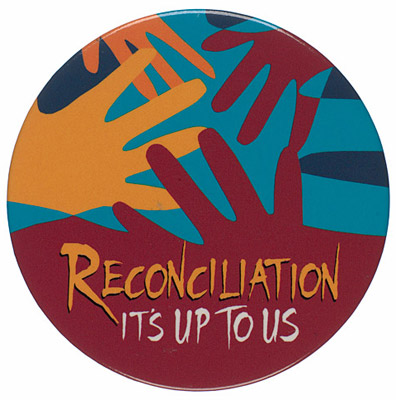 Reflect:
Reflect: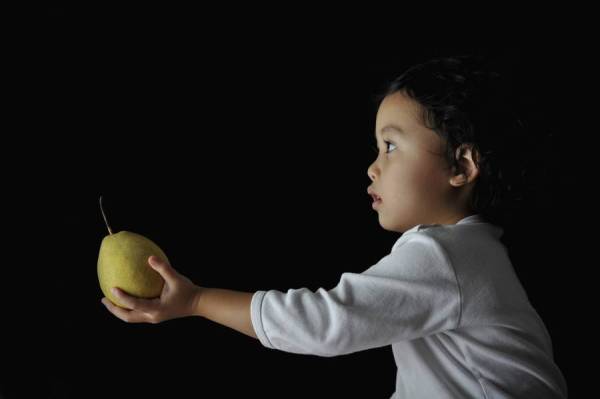 What is generosity?
What is generosity?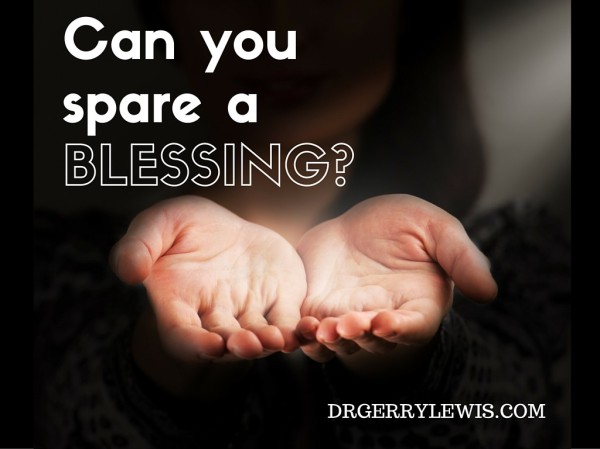 There are two notions of generosity in Judaism. The first is Tzedakah, which comes from the root for justice. This suggests that giving so that people of every age and from every life circumstance can live with dignity. Today, many people call such giving either philanthropy or charity.
There are two notions of generosity in Judaism. The first is Tzedakah, which comes from the root for justice. This suggests that giving so that people of every age and from every life circumstance can live with dignity. Today, many people call such giving either philanthropy or charity.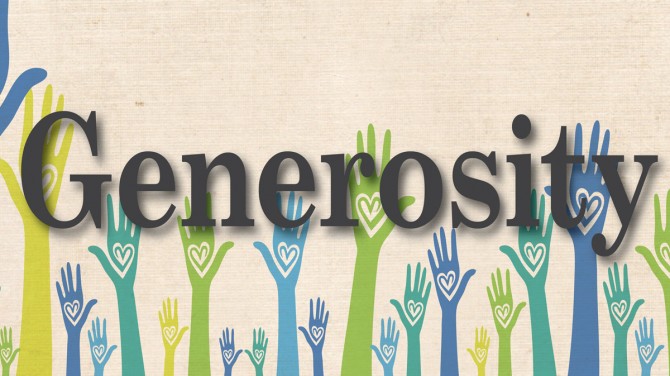 Today one does not have to look far to realize that there are many who once had plenty but now do not have enough; there are those who once managed to “get by”, but now cannot manage alone. How we respond as a community says everything about the intention of our hearts. A contemporary rabbi writes: “When we feel certain solidarity with others, we want to share our possessions and, more importantly, ourselves with them.”
Today one does not have to look far to realize that there are many who once had plenty but now do not have enough; there are those who once managed to “get by”, but now cannot manage alone. How we respond as a community says everything about the intention of our hearts. A contemporary rabbi writes: “When we feel certain solidarity with others, we want to share our possessions and, more importantly, ourselves with them.”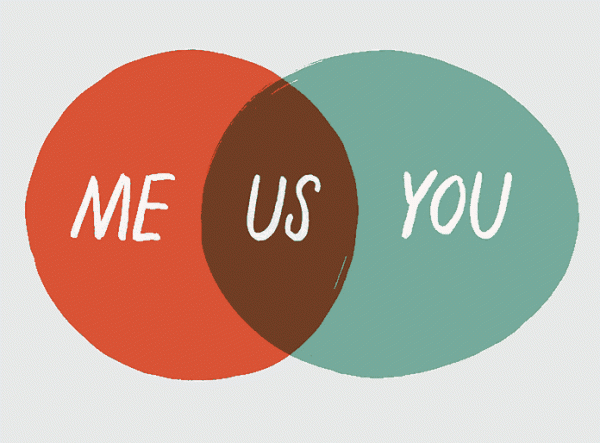 So we return to the opening word, “Vayakhel “, which connects to the Hebrew word for community, Kehilla, and is used only for assembling human beings. Here is a contemporary read on this verse: “And Moses unified the people together as one community with a shared purpose” (Ex. 35:1).
So we return to the opening word, “Vayakhel “, which connects to the Hebrew word for community, Kehilla, and is used only for assembling human beings. Here is a contemporary read on this verse: “And Moses unified the people together as one community with a shared purpose” (Ex. 35:1).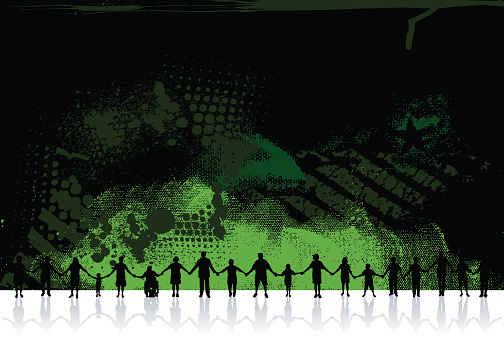 This does not say one community of identical beliefs and practices. Rather, that what unifies us as Jews, and ultimately as human beings, is our ability to incline our hearts toward one another – with kindness, generosity, and love – to inspire and support one another in the quest for healing and peace – for all of God’s creatures and for the planet with which we have been entrusted. May this be the mishkan we build – a sanctuary for all.
This does not say one community of identical beliefs and practices. Rather, that what unifies us as Jews, and ultimately as human beings, is our ability to incline our hearts toward one another – with kindness, generosity, and love – to inspire and support one another in the quest for healing and peace – for all of God’s creatures and for the planet with which we have been entrusted. May this be the mishkan we build – a sanctuary for all.
 It has been my experience that this feeling of longing without a resulting sense of connection creates feelings of abandonment which invite anxiety and depression . Such is what seems to be manifesting today. The cause appears to be the deepening of a psycho – socio-economic and belief-based conflict that is polarizing families, communities and our nation resulting in people abandoning one another and literally breaking our hearts and spirits. Unable to “love our neighbors as ourselves,” we risk cutting ourselves off from sensing the shared “Truth” that we are all human beings made of the d/Divine.
It has been my experience that this feeling of longing without a resulting sense of connection creates feelings of abandonment which invite anxiety and depression . Such is what seems to be manifesting today. The cause appears to be the deepening of a psycho – socio-economic and belief-based conflict that is polarizing families, communities and our nation resulting in people abandoning one another and literally breaking our hearts and spirits. Unable to “love our neighbors as ourselves,” we risk cutting ourselves off from sensing the shared “Truth” that we are all human beings made of the d/Divine. Mindfulness, according to
Mindfulness, according to  According to
According to  In the Golden Calf story as today, we are vulnerable to the fear of being abandoned by our leaders – political and spiritual. We, too, long for meaningful relationships which elevate our lives because they connected us to a vibrant, supporting whole that is greater than its parts. Secure in a shared mutuality of caring and responsibility, we can mindfully develop our ability to draw closer to one another instead of inflaming and abandoning one another out of our insecurities. Not as “true believers,” but as believers in truth, we can invite inclusivity, allow for diversity, advocate for connection over disconnection, pursue acceptance over judgment, and manifest love to overcome baseless hatred. This is the most concrete evidence that the d/Divine dwells here on earth.
In the Golden Calf story as today, we are vulnerable to the fear of being abandoned by our leaders – political and spiritual. We, too, long for meaningful relationships which elevate our lives because they connected us to a vibrant, supporting whole that is greater than its parts. Secure in a shared mutuality of caring and responsibility, we can mindfully develop our ability to draw closer to one another instead of inflaming and abandoning one another out of our insecurities. Not as “true believers,” but as believers in truth, we can invite inclusivity, allow for diversity, advocate for connection over disconnection, pursue acceptance over judgment, and manifest love to overcome baseless hatred. This is the most concrete evidence that the d/Divine dwells here on earth.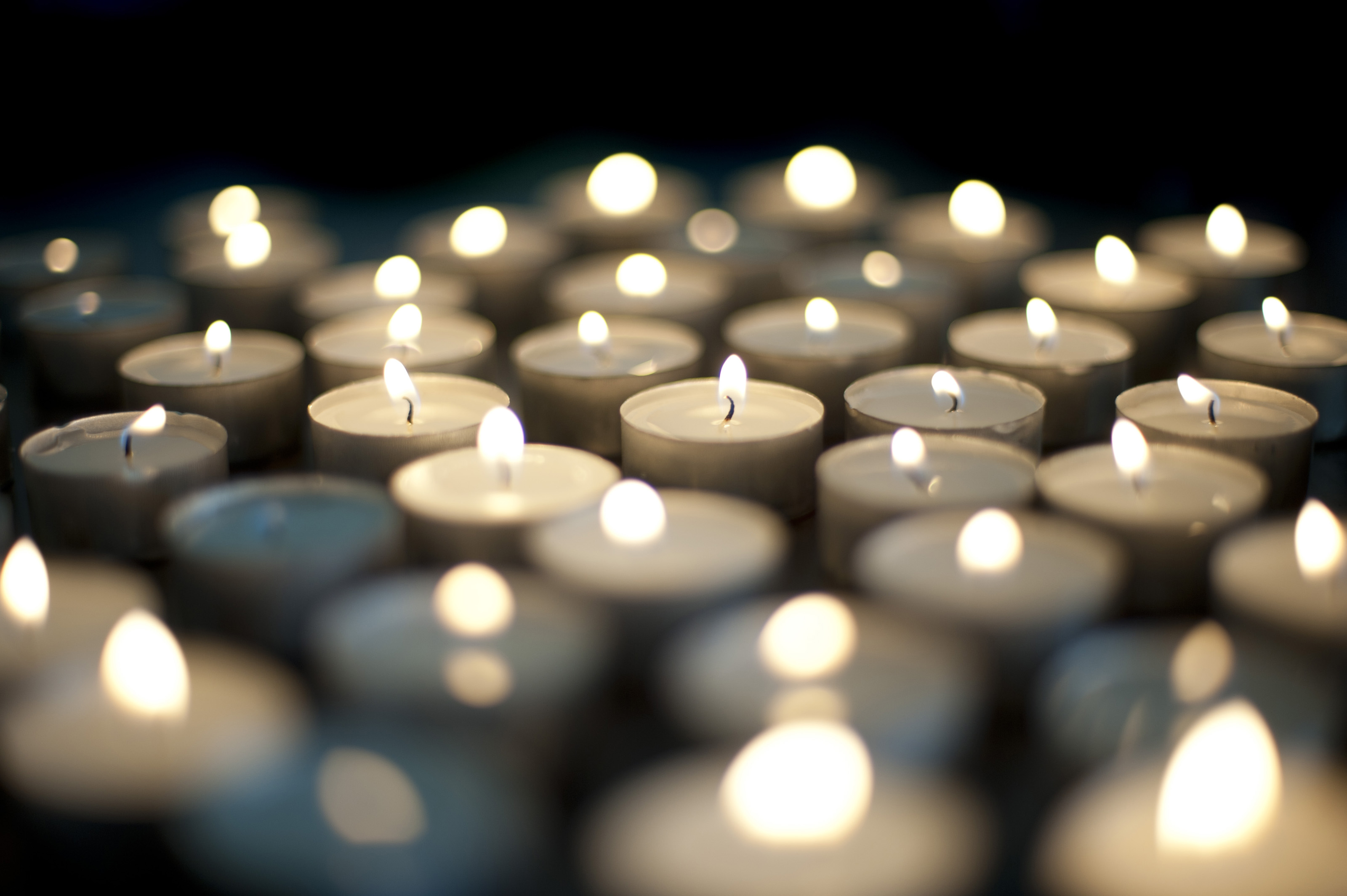 “Let there be light, and there was light…and the light was good” (Genesis 1:3-4). If the source of this goodness is not the Sun, which is not created until the fourth day of creation, what is its source and purpose? This light symbolizes hope, joy, and connection. We experience it in the form in the soft glow of the Shabbat candles, and in the flickering light of the memorial candle, in the twinkling light of birthday candles, in the night-light lit to scare away what frightens us. These are all illuminations of love.
“Let there be light, and there was light…and the light was good” (Genesis 1:3-4). If the source of this goodness is not the Sun, which is not created until the fourth day of creation, what is its source and purpose? This light symbolizes hope, joy, and connection. We experience it in the form in the soft glow of the Shabbat candles, and in the flickering light of the memorial candle, in the twinkling light of birthday candles, in the night-light lit to scare away what frightens us. These are all illuminations of love.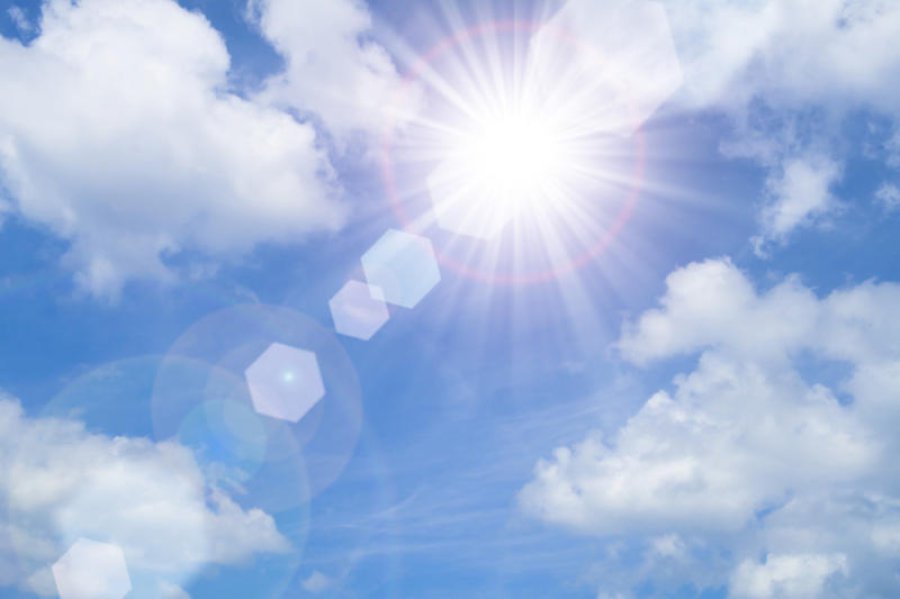 Some people actually glow. We see it; we feel it. And, for some inexplicable reason, it touches us and makes us happy. Does the source of this glow differ from person to person, circumstance to circumstance? Actually, all this glowing emanates from loving and being loved. Could there be a better reason to glow?
Some people actually glow. We see it; we feel it. And, for some inexplicable reason, it touches us and makes us happy. Does the source of this glow differ from person to person, circumstance to circumstance? Actually, all this glowing emanates from loving and being loved. Could there be a better reason to glow?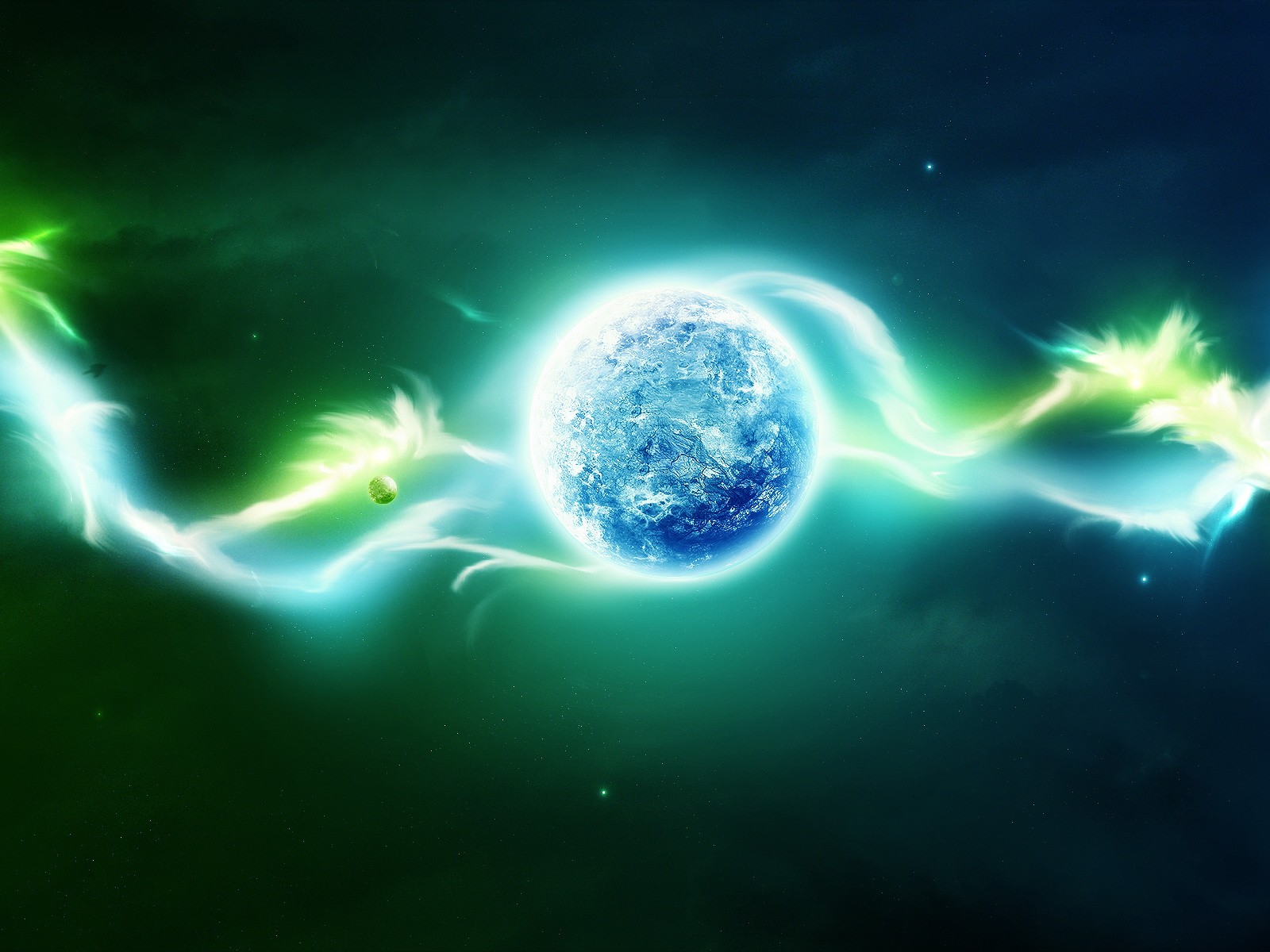 Judaism offers some unexpected paths toward love – prayer and Torah. Setting aside a discussion of what constitutes prayer, the main idea is that prayer opens our hearts and increases our capacity to love of self and love for others. Torah, in all of its forms, represents an enlightened understanding of the human condition. It illumines a path toward self-understanding and the discovery that each of us is a precious part of a greater whole. This gives our lives meaning and purpose, which increases our joy and desire to connect to others.
Judaism offers some unexpected paths toward love – prayer and Torah. Setting aside a discussion of what constitutes prayer, the main idea is that prayer opens our hearts and increases our capacity to love of self and love for others. Torah, in all of its forms, represents an enlightened understanding of the human condition. It illumines a path toward self-understanding and the discovery that each of us is a precious part of a greater whole. This gives our lives meaning and purpose, which increases our joy and desire to connect to others. The Psalmist teaches that “By Your light do we see light” (Ps. 36:10). The flame of DIVINE LIGHT is continually available to every human being. We have only to open our hearts and draw it in through actions that create joy and connection. The light of LOVE is an ever-renewing SOURCE of Healing Energy. It enables us to rekindle the flames of others without diminishing our own light. This is how we add light and love to the world. And how we are replenished.
The Psalmist teaches that “By Your light do we see light” (Ps. 36:10). The flame of DIVINE LIGHT is continually available to every human being. We have only to open our hearts and draw it in through actions that create joy and connection. The light of LOVE is an ever-renewing SOURCE of Healing Energy. It enables us to rekindle the flames of others without diminishing our own light. This is how we add light and love to the world. And how we are replenished.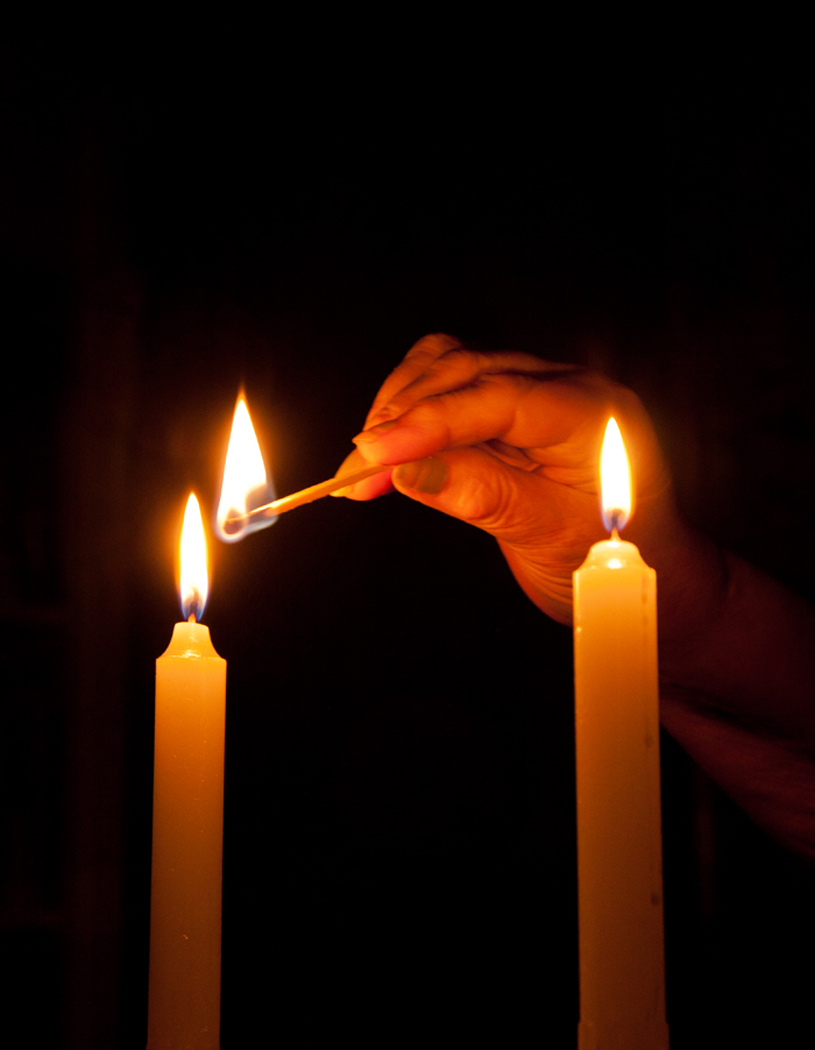 Begin tonight. Light the Shabbat candles then close your eyes and open your heart. Before reciting the blessing of gratitude for the sacred gift of Shabbat that graces us each week, use your hands to draw in beams of loving light. After reciting the blessing, turn toward your children or loved ones to bless them (or call or text them…). Allow yourself to feel the love flowing through your heart, soul and even fingers right into their souls. Bask in the light of this love. Experience the fullness of Shabbat Shalom.
Begin tonight. Light the Shabbat candles then close your eyes and open your heart. Before reciting the blessing of gratitude for the sacred gift of Shabbat that graces us each week, use your hands to draw in beams of loving light. After reciting the blessing, turn toward your children or loved ones to bless them (or call or text them…). Allow yourself to feel the love flowing through your heart, soul and even fingers right into their souls. Bask in the light of this love. Experience the fullness of Shabbat Shalom.